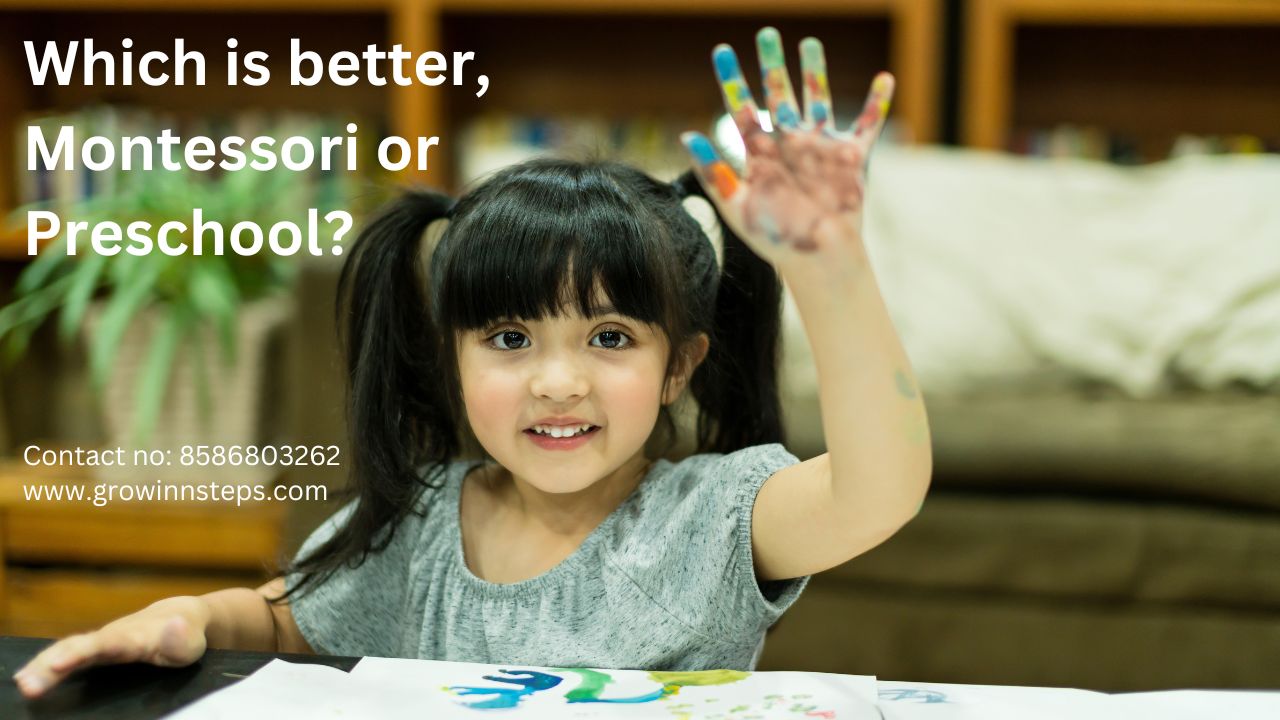Choosing between Montessori and regular preschool programs can be a significant decision for parents seeking the best educational foundation for their young children. Understanding the fundamental differences in philosophy, curriculum, classroom dynamics, and outcomes between these two approaches is crucial in making an informed choice. In this article, we explore the key aspects of Montessori and traditional preschool education to help parents navigate this important decision-making process.
Introduction to Montessori and Regular Preschool
Montessori education focuses on child-led learning and independence, while traditional preschools typically follow structured teacher-led programs.
Defining Montessori Education
Montessori education is based on the principles developed by Dr. Maria Montessori, emphasizing hands-on learning, freedom within limits, and mixed-age classrooms.
Understanding Traditional/Regular Preschool Programs
Traditional preschool programs often follow a set curriculum, with teachers guiding activities and lessons based on predetermined objectives and goals.
Philosophical Foundations and Approaches
Maria Montessori’s educational philosophy values individualized learning, respect for the child, and fostering intrinsic motivation.
Traditional Preschool Philosophies and Approaches
Traditional preschools may focus on school readiness, socialization, and following a structured routine to prepare children for formal schooling.
Curriculum and Educational Practices
Montessori curriculum emphasizes self-directed exploration, practical life skills, and multi-sensory learning experiences tailored to each child’s pace and interests.
Traditional Preschool Curriculum Components
Traditional preschool curricula often include pre-academic skills, group activities, and teacher-directed lessons to introduce early concepts like numbers, letters, and shapes.
Classroom Environment and Structure
Montessori classrooms are designed to promote independence, with carefully curated materials on low shelves for easy access and freedom for children to choose their activities.
Montessori Classroom Design and Setup
Traditional preschools typically have structured classrooms with designated areas for different activities, group tables for crafts and learning, and a teacher-directed flow of the day’s schedule.
Traditional Preschool Classroom Dynamics
In traditional preschool settings, teachers often lead group activities, circle time discussions, and organize playtime to facilitate social interactions and learning in a group setting.
Teacher Role and Student Independence
Montessori Teacher Responsibilities and Facilitation
In Montessori classrooms, teachers act as guides, observing and facilitating rather than directing. They create a prepared environment where students can explore and learn independently at their own pace.
Traditional Preschool Teacher Roles and Student Engagement
In traditional preschool settings, teachers typically lead structured activities and provide more direct instruction. Students are encouraged to participate in group activities and follow a set curriculum.
Social and Emotional Development
Montessori Approach to Social and Emotional Learning
Montessori education emphasizes the development of social skills through mixed-age classrooms, where older children mentor younger ones, fostering empathy and cooperation.
Traditional Preschool Emphasis on Social Development
Traditional preschools focus on social development through group play and collaborative activities, helping children learn to interact with peers and develop key social skills.
Academic Outcomes and Preparedness for School
Montessori Academic Performance and Transitions
Montessori students often show strong academic performance and critical thinking skills, with a focus on hands-on learning that can lead to a smooth transition to elementary school.
Traditional Preschool Impact on School Readiness
Traditional preschools aim to prepare children for the academic and social demands of kindergarten, focusing on early literacy and numeracy skills to ensure readiness for formal schooling.
Parental Involvement and Decision-making
Parental Involvement in Montessori Programs
Montessori programs often encourage parental involvement through open communication and collaboration, inviting parents to participate in their child’s learning journey.
Role of Parents in Choosing Between Montessori and Regular Preschool
Parents play a key role in choosing between Montessori and traditional preschools, considering their child’s learning style, values, and educational goals to make the best decision for their family. In conclusion, whether opting for a Montessori or traditional preschool program, the ultimate goal remains the same – to provide children with a nurturing and stimulating environment that fosters learning, growth, and development. By considering the unique strengths and characteristics of each approach, parents can make a well-informed decision that aligns with their child’s individual needs and preferences. Ultimately, both Montessori and regular preschools aim to prepare young learners for a successful educational journey ahead.
Enrol now: https://www.growinnsteps.com/pre-school
Frequently Asked Questions
FAQs: Montessori vs. Preschool
Q1: What is the main difference between Montessori and traditional preschool?
A1: The primary difference lies in the educational philosophy. Montessori education emphasizes child-led learning, where children choose activities based on their interests and pace. Traditional preschools often have a structured curriculum with specific lessons and activities directed by teachers.
Q2: Which approach is more effective for early childhood development?
A2: The effectiveness of each approach can vary based on the child’s individual needs. Montessori is often praised for promoting independence, critical thinking, and self-discipline. Traditional preschools may provide a more structured learning environment that helps children prepare for the expectations of formal schooling.
Q3: Are Montessori classrooms really different from traditional preschools?
A3: Yes, Montessori classrooms are typically designed to be more open and inviting, featuring various learning stations with hands-on materials. Students engage in self-directed activities and collaborative projects, while traditional preschools may have more uniform seating arrangements and group instruction.
